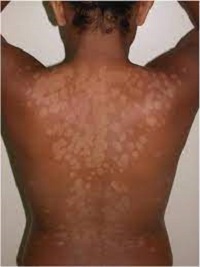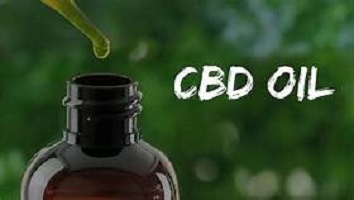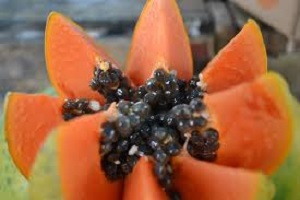Eczema Management – Home Remedies to Get Rid of Eczema
Eczema Management – Home Remedies to Get Rid of Versicolor Pityriasis

- Eczema and how to deal with it: natural ways to remove eczema permanently
- Eczema symptoms and types, causes, and treatment/prevention
Versicolor Pityriasis/Eczema
Some of us have experienced little patches of skin with unusual coloration. They are non-itchy, commonly found on the back, face, and chest, and have an unattractive appearance.
We call them “eczema” (or “ugwo” in the Igbo language) or “ifo” in the Yoruba language, right? It is commonly referred to as ‘lapalapa’ in Nigerian slang.
Pityriasis Versicolor, also known as Tinea Versicolor, is a skin disorder that causes inflammation and discomfort. Eczema, commonly known as dermatitis, is a skin reaction to an allergy.
Dermatitis is marked by redness on the skin, which is followed by itching and swelling. Eczema is commonly caused by skin contact with cleaning agents, cosmetics, food, medicine, viruses, and other allergens.
Related >>>
- Home Remedies for Glowing Skin ~ Clear & Spotless Skin
- 10 Home Remedies to Lighten Skin Naturally Without Bleaching: Part 1
- Natural Ways to Remove Facial Scars Fast at Home
Eczema Management
Eczema is one of the most common skin illnesses, and it necessitates proper hygiene and skincare to battle it.
You should see a dermatologist or doctor if you experience symptoms of infection such as fever, intense discomfort, or skin redness that persist despite natural treatment.
There are numerous treatments/cures available to alleviate the dryness and discomfort caused by eczema.
But what if you’d prefer to use natural remedies to manage your symptoms then, for example, prescription lotions or drugs?
Always willing to assist, we’ve compiled a list of 5 promising at-home cures for eczema flare-ups and symptom relief.
But first, let’s define eczema.
What is Eczema?
Eczema is a common skin ailment that occurs when the protective barrier of the skin is compromised.
It’s simpler for moisture to exit the skin and bacteria and viruses to infiltrate without a solid barrier.
Dry, itchy patches might appear on the cheeks, hands, feet, inside the elbows, and behind the knees as a result of this.
Eczema’s causes are unknown, but it’s considered that persons with the condition have overactive immune systems, causing their skin to become inflamed, itchy, and uncomfortable.
Types of Eczema ~ Eczema Management
- Atopic dermatitis
- Contact eczema
- Dyshidrotic eczema
- Allergic contact eczema (dermatitis)
- Fungal infections
- Irritant dermatitis
- Lichen simplex chronicus
- Neurodermatitis
- Nummular eczema
- Pompholyx (dyshidrotic eczema)
- Scabies
- Seborrheic eczema
- Stasis dermatitis
- Xerotic (dry skin) eczema
Causes of Eczema ~ Eczema Management
Atopic dermatitis is not caused by stress or other emotional causes, although it can exacerbate the condition.
Nuts and dairy products, for example, can exacerbate the symptoms. Environmental factors such as smoke and pollen can also trigger eczema.
Eczema Symptoms and Signs
Eczema causes itchy, red, and dry skin as a result of inflammation. It is most typically found in youngsters, but it can also affect adults. Atopic dermatitis is another name for it.
- A red patch or rash appears on the cheeks, and occasionally on the arms and hands, in little children/babies. The rash is made up of tiny blisters or sores that ooze or weep (burst and leak fluid).
- In teenagers and adults
Eczema is a drier form of eczema that is most frequent below the knees and on the inside of the elbows. It does not begin as an infection, but rather as an allergic reaction.
Eczema Home Treatments/Cures ~ Eczema Management
Here are five natural home cures for eczema that will help you get rid of it quickly:
- Turmeric ~ Eczema Management
While many eczema remedies need topical treatment, this one, in particular, is more concerned with what you consume.
Recent research has connected this spice to reducing inflammation in a variety of skin diseases, including psoriasis.
Curcumin, a turmeric-derived antioxidant, has been shown to protect skin by neutralizing free radicals and speeding wound healing.
To get rid of eczema with turmeric, though, aim to consume a teaspoon of turmeric per day.
- Virgin coconut oil ~ Eczema Management
Coconut oil reigns supreme when it comes to treating eczema. This is due to the antibacterial, antifungal, antioxidant, and antimicrobial qualities of coconut oil, which can help relieve itchy skin during a flare-up while also reducing inflammation.
It also contains lauric acid, a type of fat found in a mother’s breast milk that is used to cure a variety of viral infections.
The acid is used to treat a variety of viral infections because the body transforms it into monolaurin, a compound that fights bacteria, fungi, viruses, and other bad stuff.
Caprylic acid, vitamins E and K, and capric acid are all found in coconut oil. All of these aid in the restoration and nourishment of damaged skin.
It also aids in the reduction of itching and flaking, as well as the prevention of infection.
- Vinegar of apple cider ~ Eczema Management
Apple cider vinegar has long been used to heal skin inflammation and burns; it is also a disinfectant, as it was known to ancient civilizations as one of the most efficient home remedies for bacterial and fungal illnesses.
When treating eczema, however, you can use cotton balls to apply the vinegar directly to scaly patches, or a clean paper towel dipped in one part vinegar to one part water to apply to larger regions.
- olive oil ~ Eczema Management
Olive oil is one of the least popular natural therapies for skin infections. However, it’s worth noting that this natural oil is high in omega-3 fatty acids, which help to alleviate inflammation.
However, to get rid of eczema with olive oil, massage a warm amount into the affected parts of the skin to soften the scaly spots. Additionally, incorporating olive oil into your diet might aid in the healing of your skin from the inside out.
- Aloe Vera ~ Eczema Management
Aloe vera is well-known among Dick and Harry when it comes to natural medicines. This is because it is high in anti-inflammatory and healing components, as well as providing a pleasant cooling sensation to itchy skin.
When using aloe vera to treat eczema, apply it to the afflicted regions of the skin daily. People with recurrent skin problems should plant their aloe vera, as it will greatly benefit them.


Pingback: Can Dettol Kill Scabies | How Can Scabies Be Cured? - 9jafoods